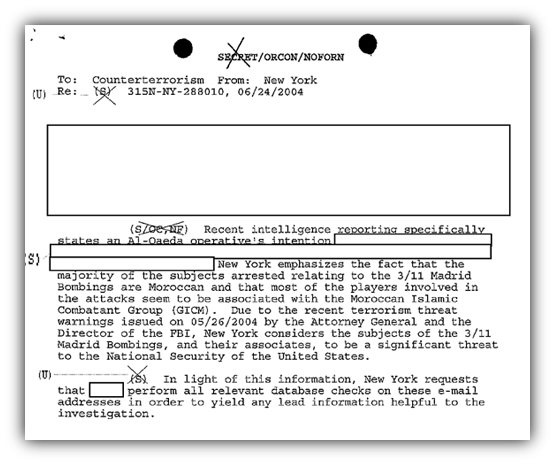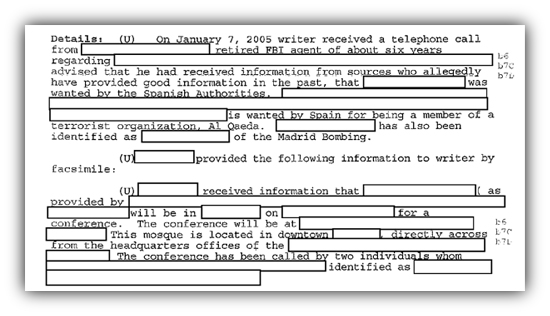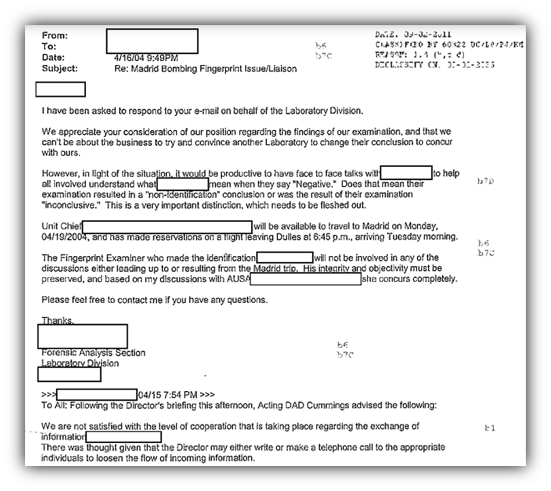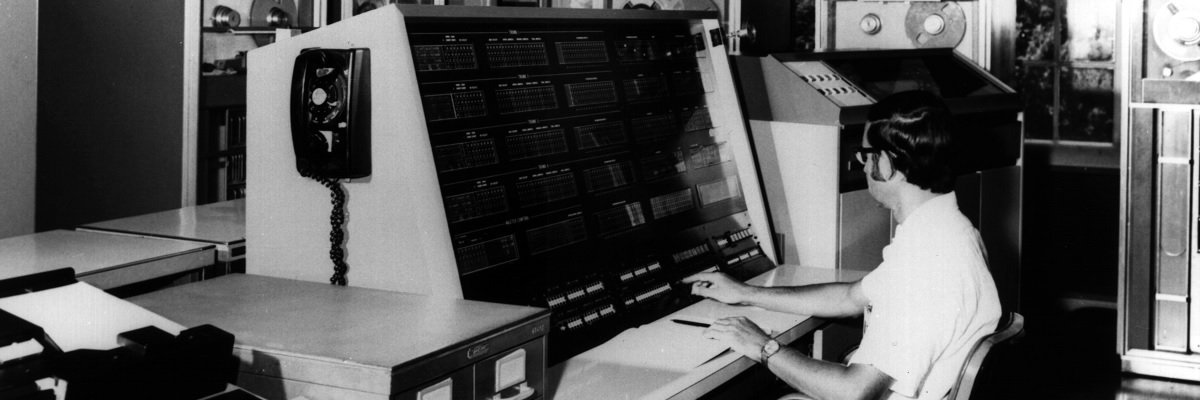The FBI’s file on the 2004 Madrid train bombings is massive, so we asked for help digesting them.
Here’s some of the most interesting finds in the 3,853 pages, tweeted to us by some of the top public records sleuths around: you!
Heather Akers-Healy (@abbynormative) uncovered a request (p. 1237) from the New York FBI office for an unknown agency to perform “all relevant database checks” for particular email addresses obtained during the investigation. The office indicated that it “consider[ed] the subjects of the 3/11 Madrid Bombings, and their associates, to be a significant threat to the National Security of the United States.”

FBI requested that *redacted do database checks on email addresses of Madrid bombing suspects @MuckRock Sect 10 p 30 pic.twitter.com/LPFOJtMAcR— Heather Akers-Healy (@abbynormative) October 18, 2013
Bradley Campbell (@bbcbjc) found that the FBI’s Cleveland office also helped identify a suspect (p. 1861), and even brought a pensioned officer out of retirement (p. 1894-1896).

The retired officer contacted FBI investigators to recount a tip from a reliable source that one of the bombing suspects would be at a conference at a mosque in a redacted location.
Just two pages later (p. 1896), though, Bradley caught that the FBI failed to redact a reference to the conference location in Caracas, Venezuela.

@MuckRock #madrid on pg. 1896 they reveal the location of the conference. previously blocked out pg 1894. Oops.— Bradley Campbell (@bbcbjc) October 21, 2013
ᴅᴧτᴧ ᴘοᴙᴎ ѕтᴧᴙ (@datapornstar) found a number of breadcrumbs in the file, including one frank email exchange (p. 564-565) over the FBI’s fingerprint scandal that falsely accused an Oregon lawyer of involvement in the bombing:

ᴅᴧτᴧ ᴘοᴙᴎ ѕтᴧᴙ also cross-checked cables in the Madrid file with those released by WikiLeaks, and found that Bureau FOIA officers heavily redacted documents already available in full online. Compare this June 2005 cable (p. 2562-2564) from the Madrid embassy to then Secretary of State Condoleezza Rice with its WikiLeaks version:
@MuckRock page 2562-2564 contains redacted embassy cable, same as http://t.co/MbEB8LVkKp #Cablegate #WikiLeaks #05MADRID2082— ᴅᴧτᴧ ᴘοᴙᴎ ѕтᴧᴙ (@datapornstar) October 20, 2013
We know that this is just the tip of the iceberg. Already, we’ve filed a few FOIA requests based off of the files and the findings above, including one for the FBI’s files on “Operation Conquistador” (p.30) and guidance to FBI classification officers for handling documents already released by WikiLeaks.
Image via Imagur




